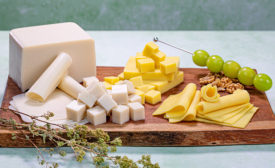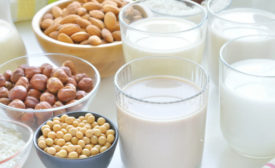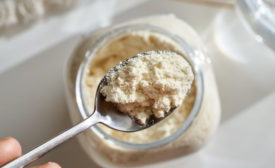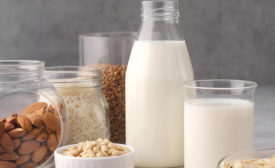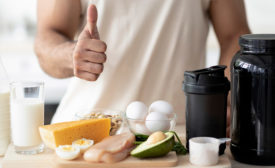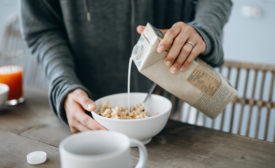Articles by Sharon Gerdes
Plant-based dairy lags in nutrition
Protein is one place traditional dairy outshines its brethren.
August 9, 2023
98% of U.S. adults can consume dairy
Today, options abound for dairy-sensitive consumers.
June 7, 2023
Dairy is the key to a healthy gut microbiome
Dairy foods provide a great vehicle to gut health.
May 8, 2023
Milk gives coffee a needed health boost
Roughly 90% of consumers add dairy milk to their coffee, and reap the benefits.
April 12, 2023
Whey remains undisputed king of proteins
Innovation abounds in protein ingredients and dairy applications.
March 10, 2023
Hybrid dairy/plant products promise better nutrition
Can dairy products that combine the best of dairy and plant features appeal to flexitarians?
February 10, 2023
Finding infant formula still challenging
Manufacturers continue to ensure the safety of infant formula, while creating a product more like breast milk.
January 27, 2023
Dairy’s benefits cannot be replaced
Calcium, D vitamins and protein are all derived from one source.
December 27, 2022
Bioengineered dairy makes a big splash
Precision fermentation produces animal-free dairy proteins.
October 7, 2022
Stay ahead of the curve. Unlock a dose of cutting-edge insights.
Receive our premium content directly to your inbox.
SIGN-UP TODAYCopyright ©2025. All Rights Reserved BNP Media.
Design, CMS, Hosting & Web Development :: ePublishing


